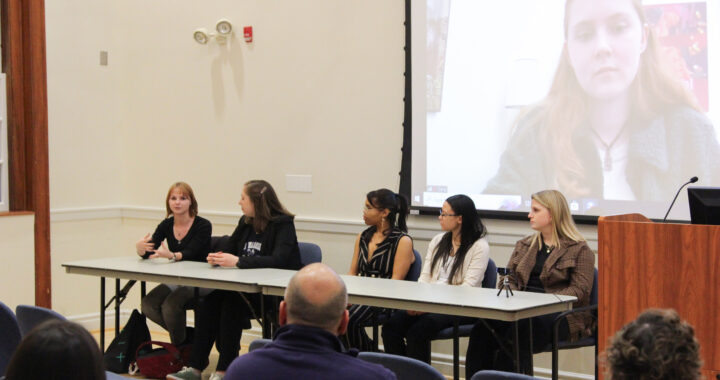Club Trades Bulbs for the Environment
2 min readBy GRACIE HART
UMW students saved 57 alpine forests last semester by participating in the Ecology Club’s light bulb exchange.
From Nov. 6 to Nov. 14, the club exchanged 1600 incandescent light bulbs for energy-saving compact fluorescent light bulbs.
According to an estimate by NORESCO, an energy services company that was contracted by UMW, this resulted in a reduction of 107,360kWh of energy or 68 tons of carbon dioxide per year.
Scott Finlinson, a representative for NORESCO, conducted an online survey in March 2007 in order to see which student behaviors needed to be addressed in order to save energy. He suggested the light bulb exchange as a way for the Eco Club to participate in the energy conservation effort.
“Based on his recommendation, the university paid for the light bulbs and then let the Ecology Club run the program,” said Eco Club Co-President Elisa Walker.
A second survey, conducted in December 2007, showed the impact of the exchange program.
According to Walker, the percentage of students who use energy saving light bulbs jumped from 35 to 58.5 percent.
“The survey showed that 36 percent of UMW residential students exchanged a bulb through our program,” said Walker. “At the end of the second survey are student comments about the exchange and they [were] overwhelmingly positive.”
NORESCO’s estimate about the number of kilowatt hours of electricity and carbon dioxide emissions saved are based on the total number of light bulbs exchanged last semester combined with the results from the first survey about the usage of lights on campus.
It was then determined that the reduction of 68 tons of carbon dioxide emissions is equal to about 57 alpine forests.
“We hope that this exchange will encourage the UMW community to start paying attention to the small behaviors we can change to reduce our environmental impact,” said Ecology Club co-President Lauren Birney. “Changing a light bulb alone won’t do it, we have to do more.”
This semester’s exchange took place March 24-26 in Seacobeck Hall. It was open to professors, faculty, staff and students. The exact number of light bulbs exchanged this week is not yet known.
“We’re hoping that we’ll be able to make this a regular thing. We actually might be able to move the exchange to a more permanent location in the bookstore if possible in the future,” Birney said.











